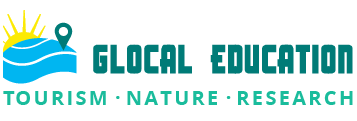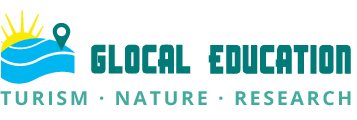Who
Since 1999 the Marine Science Group, (www.marinesciengroup.org), research team of the University of Bologna, involves citizens and tourists in the collection of useful and valid data for scientific research, through a Recreational Citizen Science approach.
So far our idea of recreational research has seen the participation of tens of thousands of people in environmental monitoring projects.
Glocal Education project, recently developed by our research group, draws on these experiences to develop a participation method based on the recreational aspect of tourism. The result is to actively influence the level of environmental awareness of the tourists involved in the project.
Our goal
• create a training program aimed to increase environmental education in tourists who visit different geographical areas during their vacations;
• study the effects of environmental education programs on tourists’ environmental awareness, on their attitude (short-term) and their behavior (long-term) towards the environment;
• evaluate tourists’ appreciation for the educational program and whether this affects the level of customer loyalty towards the brand hosting the research project





